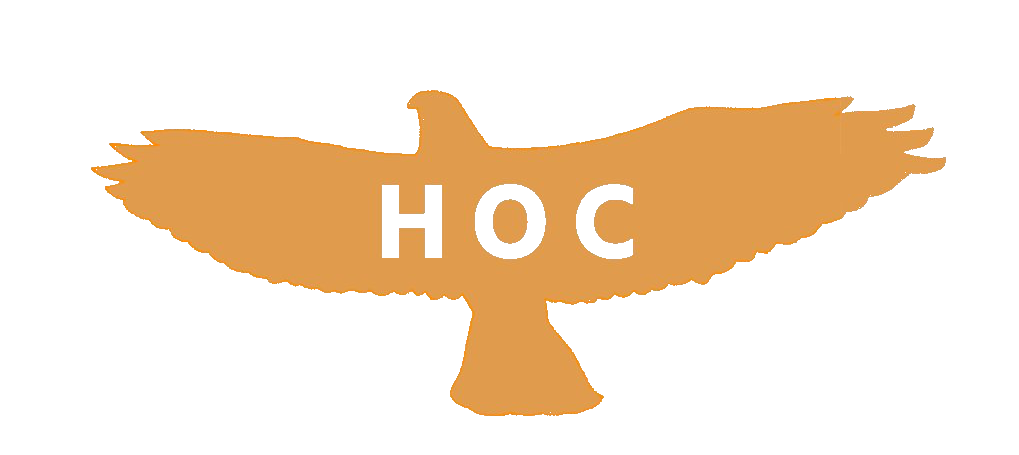Reflections on Hispanic Heritage Month by HOC Board Member, Daniel Lucio
Lucio Family Picture- Armando Lucio Jr., Regina Paula Guzman-Lucio and five of their grandsons - Daniel, David, Derek, Dario and Duran.
Once again it’s Hispanic Heritage Month. Every year, I usually get pretty salty about the fraught history of the terms Hispanic, Latino/a/x/e, and others that erase Indigenous ancestry and attempt to vaguely categorize people from a variety of races and national origins. But that’s a post for another time. For now, I’m thankful for an excuse to celebrate some of our shared cultural values, like family and food, and the opportunity to share a story about what hunting means to me, as a person who identifies as Latinx.
Whenever I’m out in the field and it gets dark and very quiet, I can still hear the hissing sound of a kerosene heat lamp. It’s a sound burned into my memory from years of early morning hunts with my grandparents. We’d get up at 4:00 am, walk or drive out in the pitch dark, maybe spread some corn along a clearing or fence, and then set up in a deer blind - usually handmade and hand painted by my grandfather. These mornings were cold, especially for south Texas. So they’d set up a heat lamp in the blind for us (my brothers and I) to stay warm and inevitably fall asleep until the sunrise, when the deer began to move.
My grandparents taught us to hunt. Whitetail, hogs, javelina, rabbits, an occasional nilgai, and of course whitewing doves - all the staples of south Texas. We used the meat for everything from big family BBQs to homemade menudo (my favorite). Season after season, memories like this are what shaped my love of the outdoors.
I was so incredibly lucky to have grandparents that created this experience for us, despite their own challenges. My grandparents grew up in the segregated south, when “whites only” was still very much a reality for the Mexican-Americans and Tejanos of all colors that had lived there for generations. During the early 20th century, this corner of Texas, the Rio Grande Valley, was home to hundreds of lynchings and forced removal by white homesteaders assisted by the Texas Rangers. It was against this backdrop that my grandparents’ families did their best to survive and thrive. My grandfather, my uncles/tios, aunts/tias, and parents would all go into public service of some kind. This is and was a sure way to both assimilate and work your way into the “middle class,” even if there were some major drawbacks.
Upon his return from serving in the US Army, my Grandfather decided to buy a rifle and take himself hunting. He already knew how to use one from his time in the service and he also knew how to prep and cook meat, but putting that together would be an adventure. He likes to tell me stories about how he slept in his truck when he first started hunting because he couldn’t afford a camper or blind. Or how he would throw in for a lease with many other hunters in the area, because most of Texas (96% actually) is privately owned and this was the only way to access land. His favorite story by far is the one where my grandmother got three deer in one day with one-shot each (!). She was always the better shot, to be honest. Together, they grew to love camping, hunting and the outdoors, and would impart that to their children and grandchildren.
There are so many people that aren't as lucky as I am to have had this experience. Learning to hunt is already complicated enough - hunting regulations, gun laws, etc. Not to mention the added barriers historically faced by Black, Indigenous and other People of Color in accessing “public” land, firearms or even the right to hunt and fish, which many Indigenous communities in the US are still fighting for. If we want a future where hunting is for everyone, where conservation is a true public priority, we need to be fighting for #landback just as hard as we fight for public land access programs. But that’s something that the major players in the hunting industry don’t seem to get yet.
This is why organizations like Hunters of Color, Minority Outdoor Alliance, HECHO and others are so important. We don’t just get it, we are living it everyday. We are POC-led, creating programs for other POCs to get into the outdoors and go hunting and fishing.
So if you’re Hispanic, Latinx/e/a/o, Chicano, Tejano, Afro-latino, Meztizo - however you identify - consider this an invitation into a space that is already ours. I welcome you to come enjoy the outdoors with Hunter of Color. We want you to share your stories of hunting, fishing, gardening, BBQs, carne asada, you name it. We’re here to support you and help make it happen and I hope you’ll do the same for those around you.

